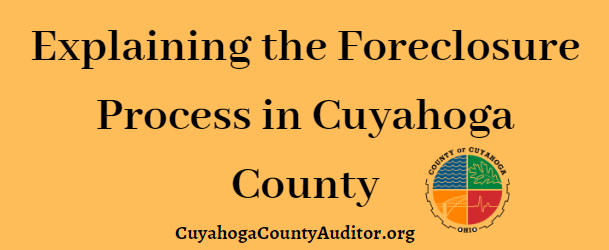Foreclosure is a legal process through which a lender repossesses a property when the borrower fails to make mortgage payments. It’s a daunting experience that many homeowners face due to various financial challenges.
Understanding Foreclosure Laws in Cuyahoga County
In Ohio, foreclosure laws govern the process of reclaiming properties due to non-payment. Cuyahoga County, located in the state of Ohio, has its own set of regulations that outline the foreclosure process in detail.
Pre-Foreclosure Phase
Before foreclosure proceedings begin, homeowners may notice warning signs such as missed payments or communication from their lender. During this phase, it’s crucial for homeowners to explore options to avoid foreclosure, such as loan modification or refinancing.
Foreclosure Process Initiation
Once a borrower falls significantly behind on mortgage payments, the lender may issue a formal notice of default. This notice initiates legal proceedings that eventually lead to foreclosure if the debt remains unpaid.
Sheriff’s Sale
A crucial step in the foreclosure process is the sheriff’s sale, where the property is auctioned off to the highest bidder. In Cuyahoga County, these sales are conducted according to specific guidelines outlined by state and local laws.
Redemption Period
Following the sheriff’s sale, homeowners typically have a redemption period during which they can reclaim their property by paying off the outstanding debt and associated costs. This period offers an opportunity for homeowners to rectify their financial situation.
Eviction and Property Transfer
If the homeowner fails to redeem the property during the redemption period, the new owner may initiate eviction proceedings. Once eviction is complete, ownership of the property transfers to the new buyer, marking the end of the foreclosure process.
Impact of Foreclosure
Foreclosure has significant financial consequences for homeowners, including damage to credit scores and potential deficiency judgments. Additionally, communities may suffer from decreased property values and increased crime rates due to vacant properties.
Alternatives to Foreclosure
Fortunately, homeowners facing foreclosure have alternatives to consider, such as short sales, deed in lieu of foreclosure, or government assistance programs. Organizations in Cuyahoga County offer resources and support to help homeowners navigate these challenging situations.
Conclusion
The foreclosure process in Cuyahoga County is complex and often overwhelming for homeowners. By understanding the various stages and available options, individuals can better navigate this challenging situation and potentially avoid losing their homes.
FAQs
-
Can foreclosure be avoided altogether?
Foreclosure can sometimes be avoided through proactive measures such as communication with lenders, loan modifications, or seeking assistance from housing counselors.
-
What happens if I can’t afford to redeem my property during the redemption period?
If homeowners cannot afford to redeem their property, they may face eviction proceedings, leading to the transfer of ownership to the new buyer.
-
Are there government programs available to help homeowners facing foreclosure in Cuyahoga County?
Yes, there are various government programs and resources available to assist homeowners in Cuyahoga County, including foreclosure prevention counseling and financial assistance programs.
-
How long does the foreclosure process typically take in Cuyahoga County?
The timeline for foreclosure can vary depending on various factors, but it generally takes several months to complete, from the initial notice of default to the sheriff’s sale and property transfer.
-
What should I do if I receive a notice of default from my lender?
If you receive a notice of default, it’s essential to take immediate action by contacting your lender to discuss options for avoiding foreclosure, such as loan modification or repayment plans.
